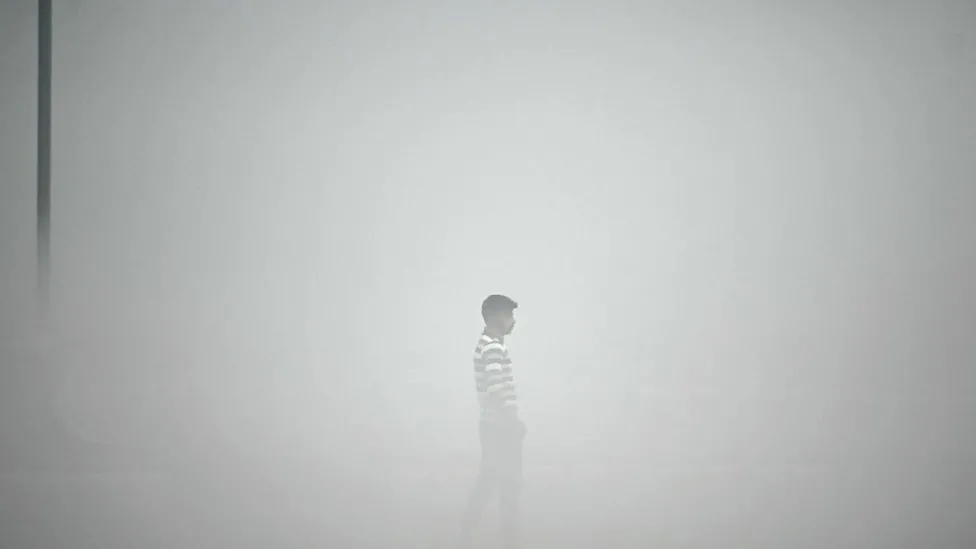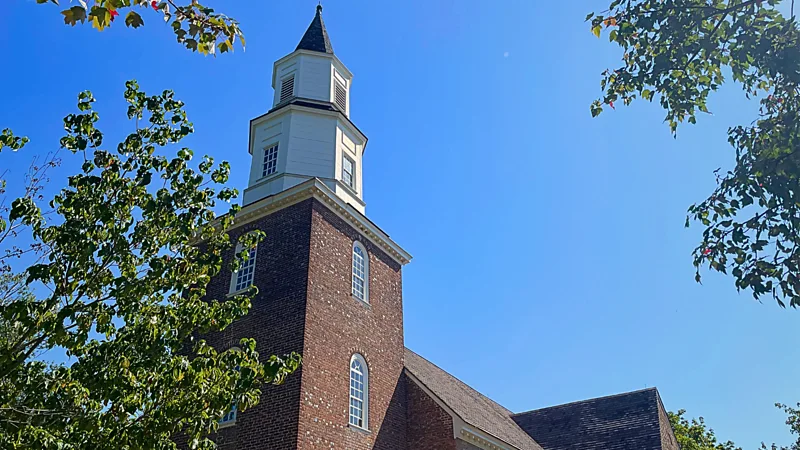Delhi AQI: Toxic haze in India capital after Diwali festival
Residents of India's capital, Delhi, woke up to smoky skies as air quality dropped after the festival of Diwali.

People in the city burst crackers late into Sunday night despite a ban on fireworks due to high pollution levels.
Delhi has been battling toxic air for weeks, with the government announcing an early winter break for schools in an effort to protect children.
The city has high pollution through the year due to factors including vehicular emissions and dust.
But the problem becomes worse in winter as farmers in neighbouring states burn crop stubble. Low wind speeds also trap pollutants - such as those produced by firecrackers - in the lower atmosphere, making it hard to breathe.
No school, no play as air pollution chokes Delhi
Delhi air turns very poor but 'worst is yet to come'
On Monday morning, according to the Sameer app - which provides hourly updates based on federal pollution control board data - the Air Quality Index (AQI) across 37 monitoring stations in Delhi was above 200, with several places recording readings above 350. The AQI measures the level of PM 2.5 - fine particulate matter that can clog lungs and cause a host of diseases - in the air.
The AQI in Delhi is 13-20 times higher than the level recommended by the World Health Organisation.
Lung specialists say breathing the capital's toxic air is akin to smoking 25-30 cigarettes a day.
Levels between 101 and 200 are considered moderate, while those between 201 and 300 are poor. Anything over 300 is categorised as "very poor" and a figure higher than 500 is considered "severe".
Experts say prolonged exposure to high levels of pollution can cause discomfort and breathing difficulties for people. It can also trigger skin and eye irritation and cause severe neurological, cardiovascular and respiratory diseases like asthma, chronic obstructive pulmonary disease, bronchitis, lung capacity loss, emphysema, cancer, and increased mortality rates.
India's Supreme Court has banned the use of firecrackers during Diwali, only allowing "green crackers" or those with reduced emissions. The Delhi government has also banned firecrackers during Diwali for the past few years, but there is little enforcement of the rule.
The ban on fireworks has also developed political tones, with some arguing that it is an attempt to target Hindu festivals.
On Monday, Delhi's environment minister Gopal Rai alleged that leaders from the Hindu nationalist Bharatiya Janata Party (BJP) - which is in power nationally but in the opposition in Delhi - had "incited" people to light firecrackers.
"The bursting of firecrackers has increased pollution levels in Delhi. Not many people have burst firecrackers but it was done in some places in a targeted manner," he said.
Leaders from the BJP have not officially responded to this.
The poor air quality on Monday came after rains on Friday morning led to a drop in pollution levels in Delhi over the weekend.
-bbc






